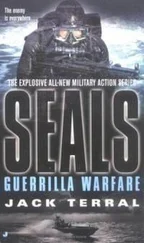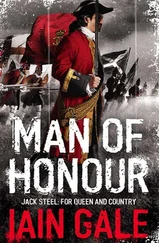The odds of that happening were extremely long, Cassell replied. The Banner had had no trouble off North Korea and neither would the Pueblo . But in the highly unlikely event that he did come under attack, Bucher was on his own. The Navy simply didn’t have enough combat ships to give him immediate relief, although help would be sent as soon as possible. And if the Navy didn’t get to the Pueblo in time, Cassell promised, a retaliatory hammer would come down hard on North Korea within 24 hours.
“Contingency plans for such an occurrence,” he said, “are written and approved.” In other words, the Pueblo was expendable, but the Navy would swiftly avenge it.
Festooned with antennae, the Pueblo attracted plenty of attention at Pearl Harbor, and Bucher invited aboard any and all officers with a role in its mission. To preserve its cover story, the Navy called it an “auxiliary general environmental research” ship, or AGER, a designation few Navy officers recognized. Between briefings and tours of the vessel, though, Bucher wanted to make sure his officers and men got time off to enjoy the delights of Hawaii. In fact, he was eager to hit the beachfront bars and nightclubs of Waikiki himself.
On their first evening in port, the officers all went to a club that featured the entertainer Don Ho and luscious Tahitian dancers. The men tossed 20 bucks apiece into a food-and-drinks kitty. But the money ran out by the end of the first show, and Lieutenant Murphy was perturbed at having to kick in more. Bucher ignored him, and the wardroom had a fine time. Tim Harris lost his shoes after a bout of hula dancing, and Bucher and Lacy didn’t get back to the Pueblo until five a.m. Despite his pique, Murphy covered for his captain later that morning when some CINCPACFLT bigwigs showed up to inspect the Pueblo and Bucher couldn’t seem to rouse himself from bed.
The tireless skipper hit the beach again that night with Lacy, Tim Harris, and about 25 enlistees and petty officers. Unlike many commissioned officers, Bucher made no effort to maintain an attitude of authoritarian aloofness toward the lower ranks. He didn’t think downing a few brews with his men in some dive undermined good shipboard order and discipline; on the contrary, such comradely elbow-bending just might foster loyalty and make the ship run better. Whatever respect the swabbies had for him, he believed, depended on his abilities as a wise leader and problem solver—not on how often he struck heroic solo poses on the bridge. If big-ship officers subscribed to the notion that familiarity bred contempt, Bucher thought familiarity aboard smaller vessels—such as subs and crowded little spy boats—was unavoidable.
After three days, the Honolulu yard workers emerged from the Pueblo ’s bowels, weary and defeated, saying they could do no more to patch up the steering engine. Bucher would have to hope for the best on the next leg of his trip and make permanent repairs in Yokosuka. On the afternoon of November 18, the ship pulled away from its dock at Pearl and headed north and west.
The steering engine failed yet again on the second day out. Sailors were still losing their lunches over the side, and the ship’s limited hygiene facilities compounded their misery. For a crew of 83 there were only four shower stalls and six washbasins. The head in the first-class petty officers’ compartment continually backed up, spitting feces and urine on the deck. (The men nicknamed it “the shooter.”) The air belowdecks was rank; by the end of the tropical days, the broiling bunk areas reeked.
Bucher stopped midocean for a “swim call,” a tradition popular with sub crews on lengthy patrols. His sailors loved it. They pulled on trunks and jumped off the low-slung well deck into the water. Then some horseplay began, with bigger men throwing in smaller ones. Someone shoved Langenberg off the deck. He landed on top of radioman John Mullin, who shrieked in pain.
The ship’s veteran corpsman, Herman “Doc” Baldridge, thought Mullin’s back might be broken. But the Pueblo had no doctor or proper sick bay, and Baldridge couldn’t do much beyond giving the injured man painkillers. Bucher radioed Pearl Harbor for advice and was told to rendezvous with a destroyer tender, the USS Samuel Gompers , which was on the same course to Japan and rapidly catching up with him. The Gompers carried doctors, X-ray equipment, and other trappings of a small hospital.
The sunshine and smooth seas gradually disappeared as the Pueblo plodded on in the volatile North Pacific. A gray curtain of rainsqualls on the horizon drew closer and thickened into a steady downpour. The skies darkened and the wind accelerated, heralding a storm. Visibility dropped to a few miles. The Pueblo jerked and heaved even more violently than usual; Mullin, strapped to his bunk, groaned in distress. Finally, the Gompers appeared on the Pueblo ’s radar screen. Thirty minutes later, the big tender broke into view through the driving rain, its signal lights flashing:
STAND BY
IN MY LEE
TO RECEIVE OUR DOCTOR.
Bucher took the conn, silently praying that the steering engine wouldn’t quit again. Just in case, he stationed a team on the fantail, the men ready to spring into action with ropes and iron tiller. As rain and flying spume pelted him on the open bridge, the skipper edged closer to the Gompers ’s downwind flank, watching intently as the bigger ship swayed ponderously alongside him.
The destroyer tender launched its whaleboat, which puttered close enough for an agile physician to leap across the last few feet of churning sea onto the Pueblo ’s rain-slick well deck. He hurried below, examined Mullin, and confirmed Baldridge’s diagnosis. Although it was risky to transfer the radioman in the storm, he had to be taken to the Gompers for treatment.
There was no way to safely deposit Mullin in the Gompers ’s bucking whaleboat. Instead, he was lashed to a stretcher and placed in the Pueblo ’s motor launch. Bucher had only a handful of men who were even halfway qualified to lower the boat into the water and maneuver it over to the Gompers in such rough conditions. But he had no choice. He gave Ensign Harris command of the launch, and then spurred the Pueblo a little nearer to the protective bulk of the Gompers . Harris and his crew managed to plop into the sea without capsizing. They beelined for the Gompers , which quickly and expertly winched up their boat and its patient.
The drama wasn’t over: Harris still had to get back to the Pueblo . As he and his men approached the ship, a sudden squall engulfed them. They could barely see in the heavy rain. They banged into the hull and had to back off. They tried again, only to be waved away by sailors on deck. On the third try Harris and his men made it. They were hoisted back on board, soaked to the bone and freezing, but proud of their deliverance of an ailing shipmate.
The Gompers sped off into the squall line and disappeared.
Bucher treated every man who’d been in the launch or out on deck to a two-ounce bottle of brandy. The grog, according to one sailor, “boosted morale about 600 percent.”
———
After two weeks at sea, Bucher was generally satisfied with the way his crew was shaping up, with one notable exception: Ed Murphy, his executive officer.
Tall and owlish behind horn-rimmed glasses, Murphy came across as a strictly-by-the-book type. His black shoes gleamed, a gold clip firmly secured his tie, and his shirtsleeves were rolled all the way down. A devout Christian Scientist, the 30-year-old lieutenant was a teetotaler who also didn’t smoke or drink coffee. His job as the Pueblo ’s number two officer was to ensure that the captain’s orders were carried out quickly and efficiently. But after working with him only a few months, Bucher regarded his deputy as a bungler and a stuffed shirt.
Читать дальше












